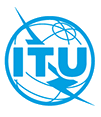International Telecommunication Union (ITU)
A specialised agency of the United Nations responsible for coordinating global telecommunication operations and services, including radio frequency allocation and satellite orbits.
The International Telecommunication Union (ITU) is critical in global communications, particularly in the maritime sector. Established in 1865, the ITU is one of the oldest international organisations and has evolved to address the growing complexity of telecommunications, including radio, television, satellite, and internet services. For the maritime industry, the ITU is essential in regulating and managing the radio frequencies used for ship-to-ship, ship-to-shore, and distress communications. The ITU allocates specific frequency bands for maritime use, ensuring that vessels worldwide can communicate effectively without interference. This is particularly important for safety at sea, as reliable communication channels are vital for navigation, distress signalling, and coordination with port authorities.
The ITU also sets technical standards for telecommunication equipment, ensuring compatibility and interoperability between systems used by different nations and vessels. This is crucial for international shipping, where ships from different countries must be able to communicate seamlessly. The ITU’s work extends to satellite communications, which are increasingly important for modern maritime operations, providing vessels with internet access, weather updates, and real-time tracking. By coordinating satellite orbits and frequencies, the ITU helps prevent interference and ensures that maritime satellite services remain reliable and efficient.
In summary, the ITU’s role in the maritime industry is indispensable for ensuring that global communication networks operate smoothly, safely, and efficiently.


